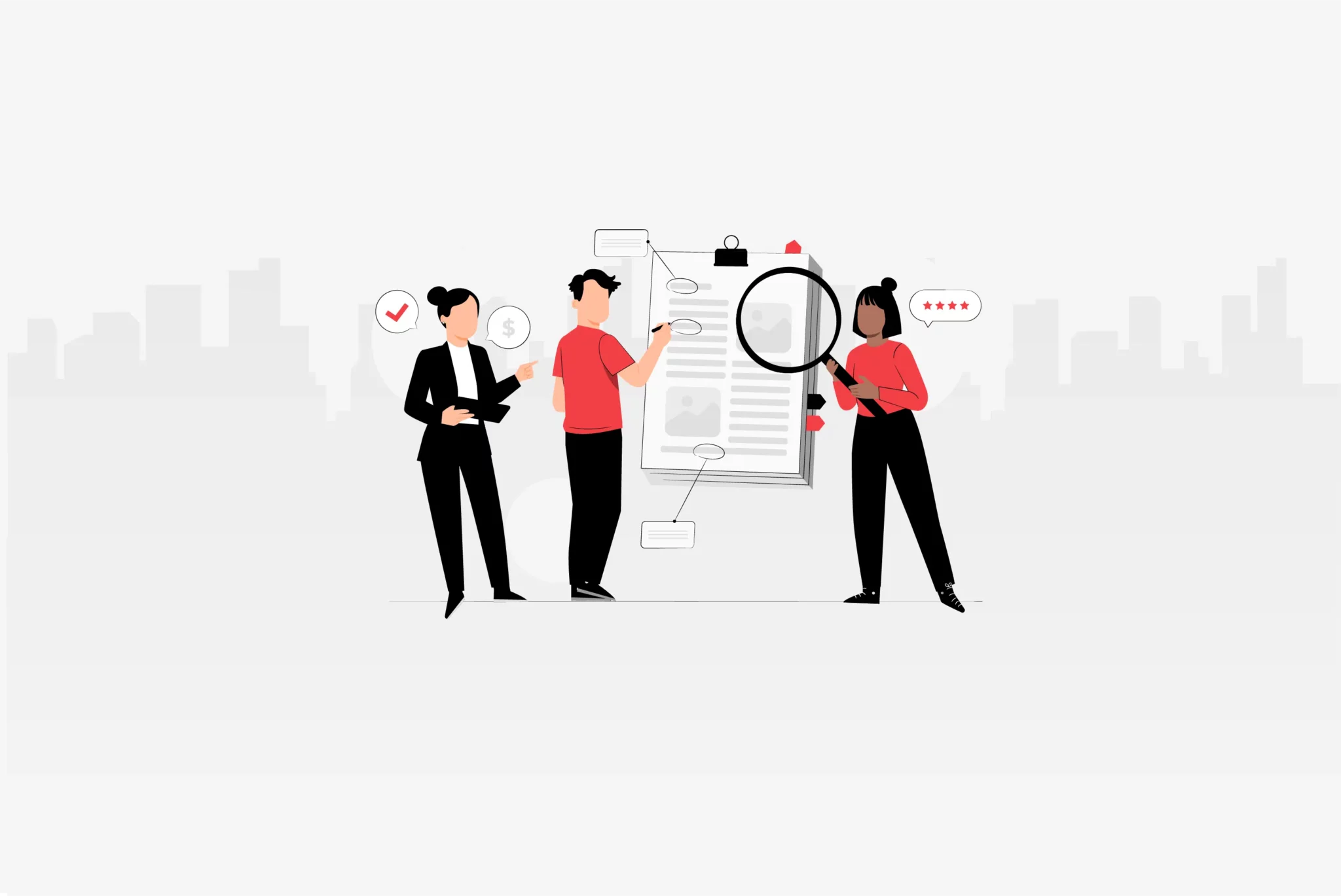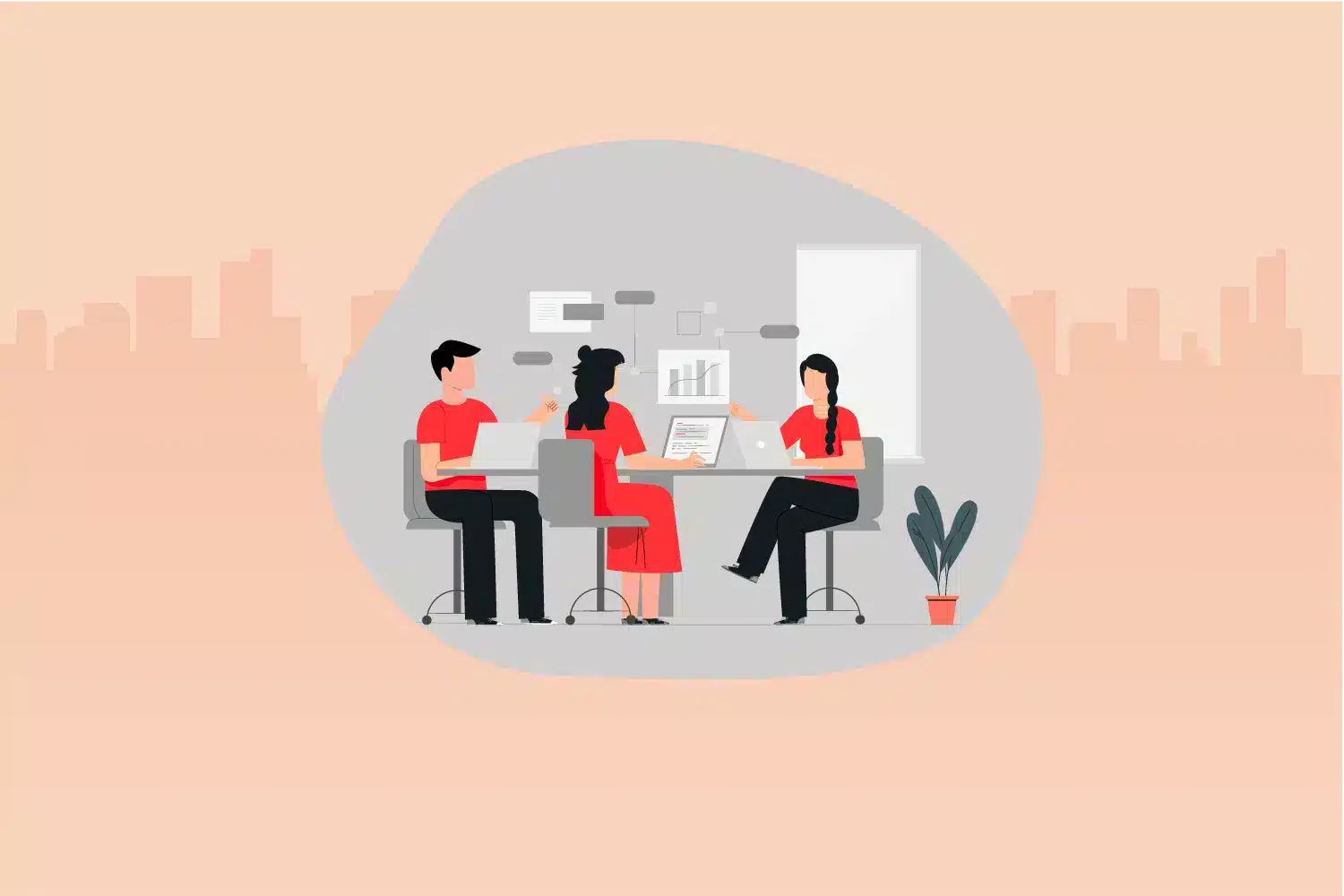The role of sustainability manager has gained significant traction in recent years as organizations recognize the need to address environmental, social, and governance (ESG) concerns. With the growing awareness of climate change and the societal push for sustainability, the recruitment trend for Sustainability Managers has witnessed a substantial upswing.
According to industry reports, there has been a remarkable 45% increase in the demand for Sustainability Managers over the past two years. This surge can be attributed to the mounting pressure from stakeholders, customers, and regulatory bodies for businesses to operate in a more sustainable and responsible manner. As HR professionals and CXOs navigate this evolving landscape, understanding the key competencies and qualifications necessary for a sustainability manager becomes paramount. To aid in the selection process, we have curated a set of interview questions designed to assess candidates’ expertise, strategic thinking, and ability to drive sustainable initiatives within an organization.
Here are the top 60 Sustainability Manager interview questions to ask job applicants:
15 general interview questions for Sustainability Manager
- Can you tell us about your experience in developing and implementing sustainability strategies within an organization?
- How do you stay updated on current trends and best practices in sustainability?
- What metrics or key performance indicators (KPIs) do you consider most important when measuring the success of sustainability initiatives?
- How do you effectively engage stakeholders, both internal and external, in sustainability efforts?
- Can you provide an example of a sustainability project you led that had a significant positive impact on an organization’s environmental or social performance?
- How do you navigate the challenges of balancing sustainability goals with financial considerations within an organization?
- Describe a situation where you faced resistance or skepticism from colleagues or senior management regarding sustainability initiatives. How did you address it?
- How do you integrate sustainability principles into the overall business strategy and decision-making processes?
- What strategies do you employ to ensure compliance with environmental regulations and standards?
- Can you discuss your experience in conducting sustainability audits and assessments? What methodologies and tools do you utilize?
- How do you approach stakeholder engagement and communication to build relationships and foster collaboration in sustainability initiatives?
- How do you monitor and report on the progress and impact of sustainability initiatives to internal and external stakeholders?
- Tell us about a time when you had to manage competing priorities or limited resources while advancing sustainability goals. How did you handle it?
- How do you promote a culture of sustainability within an organization, and how do you engage employees at all levels?
- Can you share an example of a sustainability initiative that failed or faced challenges? What did you learn from that experience, and how did you adapt your approach?
5 sample answers to general interview questions for Sustainability Manager
- Can you tell us about your experience in developing and implementing sustainability strategies within an organization?
Look for: Look for candidates who can demonstrate their experience in developing and executing sustainability strategies, including goal setting, stakeholder engagement, and successful implementation.
Example Answer: “In my previous role as Sustainability Manager at XYZ Corporation, I led the development and implementation of a comprehensive sustainability strategy. This involved conducting a thorough assessment of our environmental impact, engaging with key stakeholders such as employees, suppliers, and community organizations, and setting ambitious targets aligned with global sustainability frameworks. Through cross-functional collaboration and effective project management, we successfully implemented initiatives that resulted in a 20% reduction in greenhouse gas emissions and a 30% increase in waste diversion within two years.”
- How do you effectively engage stakeholders, both internal and external, in sustainability efforts?
Look for: Look for candidates who can demonstrate their ability to engage diverse stakeholders, build relationships, and create buy-in for sustainability initiatives.
Example Answer: “I believe that stakeholder engagement is crucial for the success of sustainability efforts. In my previous role, I utilized a multi-faceted approach, which involved establishing regular communication channels, conducting workshops and training sessions, and creating opportunities for collaboration and feedback. For instance, when implementing a company-wide recycling program, I organized employee awareness campaigns, collaborated with procurement to engage suppliers in sustainable packaging solutions, and partnered with local environmental organizations to strengthen community engagement. This inclusive approach not only increased participation and support but also fostered a sense of ownership among stakeholders.”
- How do you approach stakeholder engagement and communication to build relationships and foster collaboration in sustainability initiatives?
Look for: Look for candidates who can demonstrate strong communication and relationship-building skills, along with the ability to foster collaboration among diverse stakeholders.
Example Answer: “When it comes to stakeholder engagement and communication, I prioritize transparency, active listening, and tailored messaging. For instance, in one project, I organized regular town hall meetings where I shared updates on sustainability initiatives and invited feedback and suggestions. Additionally, I established a sustainability advisory committee comprising representatives from various departments, which acted as a platform for cross-functional collaboration and idea sharing. By actively involving stakeholders in the decision-making process and addressing their concerns, we were able to foster a culture of collaboration and achieve greater alignment towards sustainability goals.”
- What metrics or key performance indicators (KPIs) do you consider most important when measuring the success of sustainability initiatives?
Look for: Look for candidates who can identify relevant KPIs and metrics, and explain how they measure the impact and effectiveness of sustainability initiatives.
Example Answer: “When measuring the success of sustainability initiatives, I focus on a range of KPIs that align with the specific goals and objectives of the initiatives. For example, for energy efficiency projects, I track metrics such as energy consumption, cost savings, and carbon emissions reduction. In terms of waste management, I monitor waste diversion rates, landfill reduction, and recycling rates. Additionally, I believe it’s important to consider the social aspects of sustainability, so I also track metrics related to employee engagement, community involvement, and stakeholder satisfaction. By evaluating these metrics regularly, I can assess the effectiveness of our initiatives, identify areas for improvement, and communicate the impact to stakeholders.”
- How do you promote a culture of sustainability within an organization, and how do you engage employees at all levels?
Look for: Look for candidates who can demonstrate their ability to drive cultural change, inspire employee engagement, and embed sustainability practices across all levels of an organization.
Example Answer: “To promote a culture of sustainability, I believe in the power of education, empowerment, and recognition. In my previous role, I developed and delivered sustainability training programs for employees at all levels, emphasizing the business case for sustainability and providing practical tips for integrating sustainable practices into their daily work. Additionally, I facilitated employee-led sustainability committees in each department, encouraging ownership and innovation. Recognizing and celebrating sustainability achievements through internal communications, awards, and incentives also played a significant role in fostering employee engagement. These efforts helped create a shared sense of purpose and a culture where sustainability became an integral part of our organizational DNA.”
15 behavioral interview questions for Sustainability Manager
- Describe a time when you successfully developed and implemented a sustainability initiative within an organization. What were the key steps you took, and what was the outcome?
- Can you share an example of a situation where you faced resistance or skepticism from stakeholders regarding sustainability initiatives? How did you overcome it?
- Tell us about a time when you had to navigate competing priorities or limited resources while advancing sustainability goals. How did you handle it?
- Describe a sustainability project that didn’t go as planned. What challenges did you face, and how did you adapt your approach to ensure success?
- Share an experience where you had to engage a diverse group of stakeholders with conflicting interests in a sustainability project. How did you manage to align their interests and achieve a successful outcome?
- Describe a time when you identified an opportunity to integrate sustainability principles into the overall business strategy. How did you communicate this idea and gain buy-in from key decision-makers?
- Tell us about a situation where you had to handle a sustainability-related crisis or incident. How did you manage the situation and minimize the impact on the organization?
- Share an example of a sustainability-related partnership or collaboration you initiated. How did you identify the opportunity, and what were the key benefits and outcomes?
- Describe a time when you had to ensure compliance with environmental regulations or industry standards. How did you approach the challenge, and what steps did you take to achieve and maintain compliance?
- Tell us about a sustainability-related innovation or improvement you introduced within an organization. How did you identify the need for change, and what steps did you take to implement it successfully?
- Share an experience where you had to engage employees at all levels to create a culture of sustainability within an organization. How did you inspire and motivate them to embrace sustainable practices?
- Describe a situation where you had to balance short-term financial considerations with long-term sustainability goals. How did you make decisions that addressed both aspects effectively?
- Tell us about a time when you faced a significant sustainability-related challenge that required you to think creatively and develop an innovative solution. How did you approach the challenge, and what was the outcome?
- Share an experience where you had to effectively communicate complex sustainability concepts or goals to a non-technical audience. How did you ensure understanding and engagement?
- Describe a situation where you had to measure and report the progress and impact of sustainability initiatives to internal or external stakeholders. How did you ensure accuracy and transparency in your reporting?
5 sample answers to behavioral interview questions for the Sustainability Manager
- Describe a time when you successfully developed and implemented a sustainability initiative within an organization. What were the key steps you took, and what was the outcome?
Look for: Look for candidates who can demonstrate their ability to plan, execute, and achieve positive outcomes in sustainability initiatives.
Example Answer: “In my previous role, I led the development and implementation of a comprehensive waste reduction program. To start, I conducted a waste audit to identify key areas for improvement and set specific targets for waste reduction. I then collaborated with cross-functional teams to raise awareness, establish waste segregation processes, and identify opportunities for recycling and composting. By providing training, tracking progress through regular audits, and communicating the impact to employees, we were able to reduce overall waste generation by 35% within the first year. This initiative not only achieved significant cost savings but also enhanced our sustainability reputation within the industry.”
- Tell us about a time when you had to navigate competing priorities or limited resources while advancing sustainability goals. How did you handle it?
Look for: Look for candidates who can demonstrate their ability to prioritize and make informed decisions in resource-constrained situations.
Example Answer: “In a previous role, I faced the challenge of balancing sustainability goals with limited resources. We had to decide between investing in energy-efficient equipment or funding employee sustainability training. To address this, I conducted a thorough cost-benefit analysis, considering factors such as potential energy savings, payback periods, and employee engagement. Based on the analysis, I proposed a phased approach, starting with employee training to drive behavior change and optimize resource utilization. By securing buy-in from senior management and leveraging external funding opportunities, we successfully implemented the training program, which resulted in a 15% reduction in energy consumption and engaged employees as sustainability champions.”
- Share an example of a sustainability-related partnership or collaboration you initiated. How did you identify the opportunity, and what were the key benefits and outcomes?
Look for: Look for candidates who can demonstrate their ability to identify and foster strategic partnerships that advance sustainability objectives.
Answer: “In my previous role, I identified an opportunity to collaborate with a local nonprofit organization focused on environmental education. Recognizing the mutual benefits of such a partnership, I reached out to their team to explore collaboration possibilities. We jointly developed a sustainability education program for schools, leveraging their expertise in environmental education and our organization’s resources. Through this partnership, we delivered interactive workshops to over 10 schools, reaching more than 1,000 students. The program not only enhanced environmental awareness among the youth but also strengthened our brand reputation as a socially responsible organization committed to sustainability.”
- Describe a time when you had to ensure compliance with environmental regulations or industry standards. How did you approach the challenge, and what steps did you take to achieve and maintain compliance?
Look for: Look for candidates who can demonstrate their knowledge of environmental regulations and their ability to develop and implement compliance strategies.
Example Answer: “In my previous role, I was responsible for ensuring compliance with air emissions regulations. To tackle the challenge, I conducted a comprehensive review of our emissions sources, monitored regulatory updates, and engaged with regulatory agencies to stay informed about the evolving requirements. I then collaborated with cross-functional teams to implement necessary controls, such as installing emission monitoring systems and optimizing operational processes. Through regular internal audits and proactive engagement with regulators, we maintained compliance and achieved a 100% clean air inspection rating for three consecutive years.”
- Share an experience where you had to measure and report the progress and impact of sustainability initiatives to internal or external stakeholders. How did you ensure accuracy and transparency in your reporting?
Look for: Look for candidates who can demonstrate their ability to effectively measure, track, and communicate the impact of sustainability initiatives.
Example Answer: “In my previous role, I was responsible for tracking and reporting the progress and impact of sustainability initiatives to internal and external stakeholders. To ensure accuracy and transparency, I established a robust monitoring and reporting system. This involved defining key performance indicators (KPIs) aligned with our sustainability goals, implementing data collection processes, and utilizing sustainability software for data management and analysis. By conducting regular audits and verifying data accuracy, we ensured the reliability of our reports. To communicate the impact effectively, I developed visually appealing reports and dashboards that highlighted the achievements, challenges, and future goals. Additionally, I facilitated stakeholder engagement sessions to gather feedback, address concerns, and maintain transparency in our reporting process.”
15 personality interview questions for the Sustainability Manager
- How would you describe your passion for sustainability and its importance in today’s world?
- Tell us about a time when you demonstrated resilience and perseverance in overcoming challenges related to sustainability.
- How do you approach problem-solving and decision-making in sustainability-related situations?
- Can you share an example of a time when you demonstrated strong leadership skills in driving sustainability initiatives?
- How do you stay motivated and keep yourself updated on the latest trends and developments in sustainability?
- Describe a situation where you had to adapt to change and embrace innovation in the context of sustainability.
- How do you prioritize and manage your time effectively when handling multiple sustainability projects simultaneously?
- Tell us about a time when you had to influence and persuade others to adopt sustainable practices or policies.
- How do you handle conflict and promote collaboration among team members and stakeholders in sustainability projects?
- Describe a situation where you had to make a difficult ethical decision in the context of sustainability. How did you approach it?
- How do you foster a culture of inclusivity and diversity within sustainability initiatives?
- Can you share an example of a time when you demonstrated strong communication and storytelling skills in conveying the importance of sustainability to different audiences?
- How do you approach risk management in sustainability projects? Can you provide an example of when you identified and mitigated potential risks?
- Describe a situation where you had to work under pressure and meet tight deadlines in the context of sustainability initiatives. How did you handle it?
- How do you ensure accountability and measure the long-term impact of sustainability initiatives within an organization?
5 sample answers to personality interview questions for the Sustainability Manager
- How do you handle ambiguity and uncertainty in sustainability initiatives? Can you provide an example of a situation where you had to navigate through uncertainty and still make progress toward sustainability goals?
Look for: Look for candidates who can demonstrate adaptability, resilience, and the ability to navigate uncertain situations while maintaining progress towards sustainability objectives.
Example Answer: “I thrive in ambiguous situations and see them as opportunities for growth and innovation. In a previous role, we faced uncertainty regarding the availability of renewable energy incentives for a planned solar installation project. Instead of halting progress, I initiated an in-depth analysis of alternative financing options and engaged with external experts to explore creative funding models. This allowed us to secure financing through a power purchase agreement, enabling us to proceed with the project and achieve our renewable energy goals. By embracing uncertainty, thinking outside the box, and proactively seeking solutions, we were able to turn the situation into a success.”
- Describe a time when you demonstrated resilience and perseverance in the face of challenges or setbacks while working on sustainability projects. How did you stay motivated and overcome obstacles?
Look for: Look for candidates who can showcase their ability to stay determined, motivated, and focused when faced with challenges or setbacks in sustainability projects.
Example Answer: “During a sustainability project aimed at reducing water consumption, we encountered unexpected technical issues that significantly delayed the implementation timeline. However, I remained committed to the project’s goals and worked closely with the team to address the challenges. I fostered an environment of open communication, encouraging team members to share their ideas and perspectives on overcoming the obstacles. By maintaining a positive mindset, seeking innovative solutions, and motivating the team, we were able to develop alternative strategies, leverage new technologies, and ultimately achieve a 25% reduction in water usage.”
- How do you approach decision-making in sustainability management? Can you share an example of a difficult decision you had to make and how you ensured it aligned with both sustainability goals and business objectives?
Look for: Look for candidates who can demonstrate their ability to make informed decisions that consider both sustainability goals and the broader business context.
Example Answer: “In sustainability management, I prioritize data-driven decision-making that aligns sustainability goals with the overall business objectives. For instance, I faced a difficult decision between investing in a renewable energy project with a longer payback period and implementing energy efficiency measures that would deliver immediate cost savings. To address this, I conducted a comprehensive cost-benefit analysis, considering factors such as financial viability, environmental impact, and long-term sustainability. Based on the analysis, I recommended a two-phase approach that involved implementing energy efficiency measures to generate immediate savings, which then funded the renewable energy project in the subsequent phase. This decision allowed us to achieve short-term financial benefits while progressing towards our long-term sustainability goals.”
- Sustainability initiatives often require collaboration and teamwork. How do you foster collaboration and build strong relationships with cross-functional teams and stakeholders to achieve sustainability objectives?
Look for: Look for candidates who can demonstrate their ability to collaborate, communicate effectively, and build relationships with diverse stakeholders in sustainability initiatives.
Example Answer: “I believe in fostering a collaborative environment where all stakeholders feel valued and included in the sustainability journey. To achieve this, I prioritize active communication and engagement, ensuring that stakeholders have a voice and their perspectives are considered. In a recent sustainability project, I organized regular cross-functional team meetings, where we shared updates, discussed challenges, and brainstormed solutions together. I also initiated stakeholder workshops and focus groups to gather insights and foster a sense of ownership. By actively listening, being open to feedback, and leveraging the strengths of each team member and stakeholder, we fostered strong relationships, increased collaboration, and successfully achieved our sustainability objectives.”
- Tell us about a time when you had to influence and inspire others to embrace sustainability practices and adopt a more sustainable mindset. How did you approach this, and what were the results?
Look for: Look for candidates who can demonstrate their ability to influence, inspire, and drive sustainable change within an organization or team.
Example Answer: “In a previous role, I recognized the importance of employee engagement in driving sustainable practices. To inspire a more sustainable mindset, I organized awareness campaigns, training sessions, and workshops that highlighted the environmental and social benefits of sustainable practices. I also empowered employees to contribute their ideas and initiatives by establishing a sustainability suggestion program. As a result, we saw a significant increase in employee participation, with individuals implementing their own sustainability initiatives within their departments. This not only created a culture of sustainability but also led to concrete results, such as a 20% reduction in energy consumption and a 30% decrease in waste generation.”
When should you use skill assessments in your hiring process for Sustainability Manager?
Skill assessments can be valuable tools to incorporate into the hiring process for Sustainability Manager positions. Assessments provide objective insights into a candidate’s abilities, knowledge, and competencies, helping to validate their claims and qualifications. By using skill assessments, employers can make more informed hiring decisions and identify candidates who possess the specific skills required for success in sustainability management roles.
Assessments are important because they go beyond what candidates claim on their resumes or in interviews. They provide a standardized and consistent way to measure a candidate’s skills, ensuring that the hiring process is fair and unbiased. Furthermore, assessments help identify candidates who possess the technical expertise, problem-solving abilities, analytical skills, and strategic thinking necessary for effective sustainability management.
There are various skill assessments that can be used to assess the skills of Sustainability Manager candidates. These can include:
- Sustainability Knowledge Assessments:
These assessments evaluate a candidate’s understanding of sustainability principles, frameworks, regulations, and best practices. They can test knowledge in areas such as environmental science, social impact, renewable energy, circular economy, and sustainable supply chain management.
- Case Studies and Scenario-Based Assessments
These assessments present candidates with realistic sustainability scenarios or case studies and ask them to analyze the situation, propose solutions, and demonstrate their critical thinking and problem-solving skills.
- Data Analysis and Reporting Assessments
These assessments evaluate a candidate’s ability to analyze sustainability data, interpret trends, and prepare comprehensive reports. They may involve data manipulation, statistical analysis, and data visualization tasks using tools such as Excel or sustainability software.
- Stakeholder Engagement and Communication Assessments
These assessments assess a candidate’s ability to effectively engage stakeholders, communicate sustainability strategies, and drive behavior change. They may include role-playing exercises or written communication tasks to evaluate interpersonal and communication skills.
By utilizing skill assessments tailored to the specific requirements of a Sustainability Manager role, employers can ensure they select candidates who possess the necessary skills and competencies to drive sustainable practices and make a positive impact within their organizations.
Use our interview questions and skill tests to hire a talented Sustainability Manager
Unlock the potential of your hiring process with Testlify’s comprehensive skill assessments and interview questions specifically designed for sustainability managers.
Our extensive test library offers a wide range of assessments, including cognitive function, personality, situational judgment, programming, and more. By leveraging these assessments, you can objectively evaluate candidates’ abilities, ensuring you shortlist the most talented individuals efficiently.
To further enhance your hiring process, we invite you to book a free 30-minute live demo. Our expert team will guide you through the platform, showcasing relevant skill tests tailored to your hiring needs. With our support, you can streamline candidate selection, saving valuable time and resources.
Ready to find the perfect fit for your sustainability manager role? Testlify provides the tools you need to make informed hiring decisions. Explore our skill assessments and interview questions today to uncover exceptional talent for your team.






